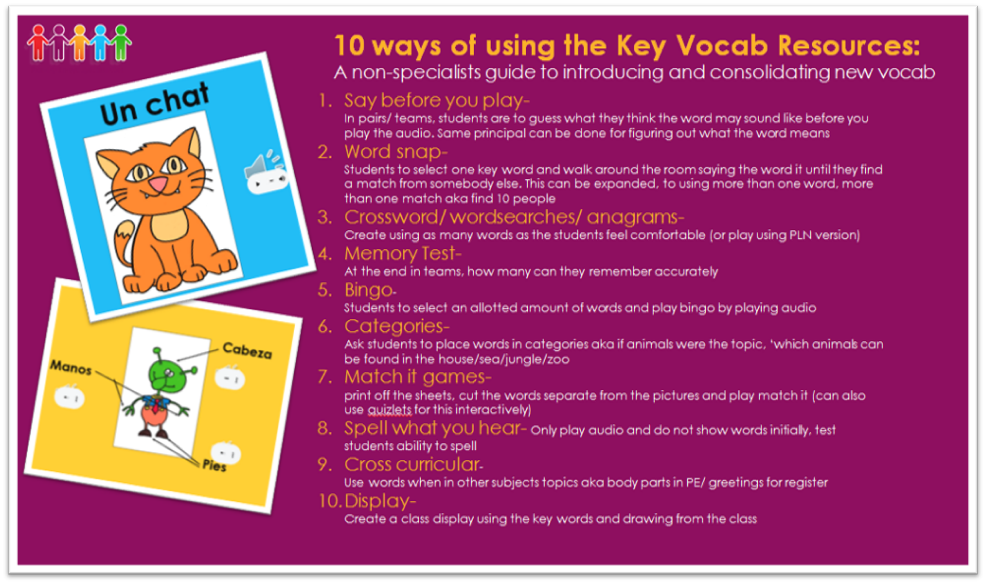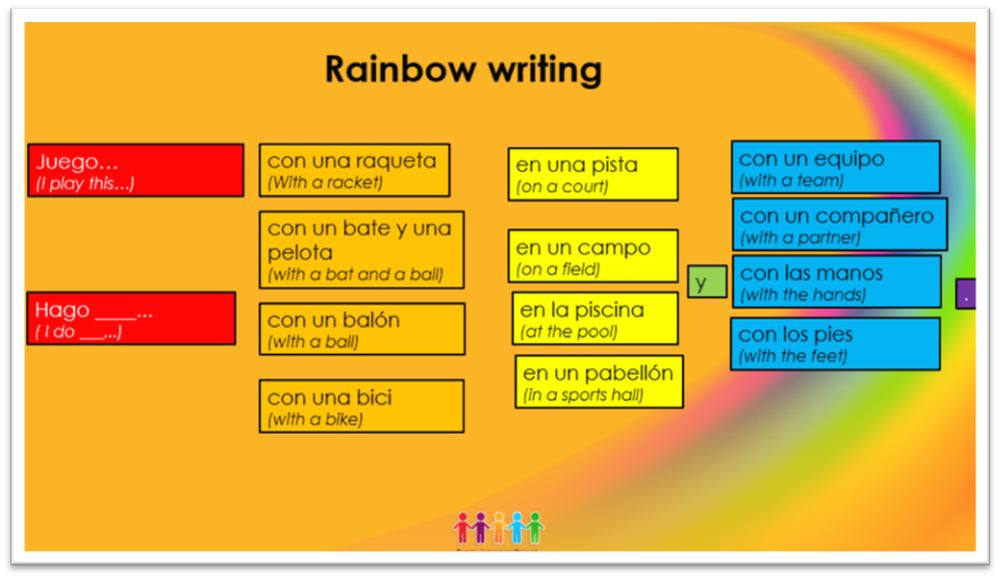How to promote self-efficacy in primary schools #2, 3 part series
I’m Kate Percival, a primary teacher and MFL consultant here at Primary Languages Network. In my blogs, I’ll be sharing top tips and inspirational ideas from the schools and coordinators I’ve been working with.
In the second part of this series we look at further ways to encourage a growth mindset and steps to improve self-efficacy amongst our young language learners.
Read on to find out more.
1. Practice, practice, practice! – opportunities for recall
We cannot expect children to remember a set of new words which they have only heard a couple of times. Depending on what you read, research tells us a word needs to be engaged with 12, 25, 60 times before it is assimilated. We owe it to our learners to give them plenty of opportunity for practice and recall so that working memory is freed up for new learning. Ideally your warm-up/starter should be a retrieval task recapping previous learning just like our Go Fetch recall activities. And then, why not make use of those spare two minutes here, five minutes there during the week, usually at transition times, to re-visit language? Listening and joining in with a song again during tidy up time, choosing who lines up for break or lunch by listing vocabulary or answering a target language question, using your PE warm-up time to recap new words in a game of corners. In fact, little and often is most effective with language. I always say registrations are the most under-used time for learning. Think about it; the two and a half minutes it takes to do the register, twice a day can be a great opportunity to use the target language. Answer with an opinion phrase or the name of a sport for example. Use your PowerPoint on ‘slide sorter’ mode on the board to work through the vocabulary in order if you like. By the afternoon, remove a bit of support and use pictures only or ask the children to respond from memory. The whole class is hearing the repetition of language 30 times as well and this practice, makes perfect!
2. Differentiated but with a ‘no ceilings approach’
Rainbow writing scaffolds but does not limit what children are able to write in the target language.
We know tasks need to be differentiated to cater for children’s ability levels and throughout the PLN Schemes of Work, you will be familiar with the ‘circle’ and ‘hexagon’ options of worksheets but it is also worth considering a ‘no ceilings approach’ sometimes where children can have a go at the activity and see where their own level is and tasks like PLN’s ‘Rainbow sentences’ do exactly that. Children can start small and build up to writing a more complex sentence following the rainbow-ordered columns, all the time knowing that they will achieve a grammatically correct sentence which adds to that sense of achievement.
3. Children set their own targets
I will let Steve explain this one:
““When introducing new vocab, particularly at the start of a half term, I make a point of telling the children that they don’t have to remember them all straight away. Obviously, fantastic if they can but if they can remember 5 (or as many as you can) of them to begin with, that’s brilliant, and then gradually build on that remembering a couple more the week after and so on - and using that same vocab in the different aspects of their language learning throughout the topic will naturally build on that - just so that the children don’t get too overwhelmed. I sometimes sense that sigh of relief in them. It’s not about learning tons of vocab - but how they apply those language learning skills using that vocab. You don’t always have to know what the word means to apply some of those skills!”
— Steve Eardley, MFL Coordinator, Michael Drayton Primary School
Reward skills, strategies and steps to self-efficacy
One key thing to remember is that we need to be the role model for the children in our class. Make the mistakes, take time to show how practice makes perfect and share the strategies you use yourself as a lifelong language learner. Find out more steps to self-efficacy in PLN’s next and final blog of the series. Coming soon…
To book one of our trainers for a twilight or full day session for your school or Trust, get in touch with sylvia@primarylanguages.network
Kate Percival runs MFL consultancy sessions for co-ordinators which can run virtually and can cover areas such as: starting out with primary languages in your school, putting together coordinator documentation, preparing for an MFL deep dive and looking for the next challenge. You will be given a full report of the discussion which includes working points and this can be shared with your Head teacher. Also included is a shorter catch-up session at an agreed future date where we can celebrate progress made and support with anything further.
If you would like to book Kate for a consultancy session, contact sylvia@primarylanguages.network or click on the link below:



